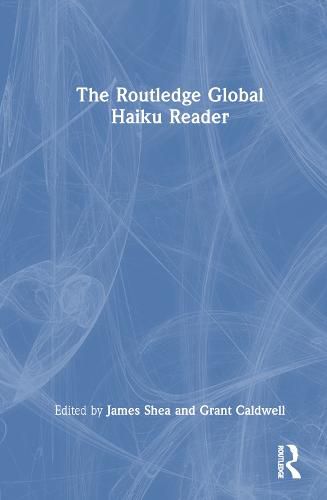Readings Newsletter
Become a Readings Member to make your shopping experience even easier.
Sign in or sign up for free!
You’re not far away from qualifying for FREE standard shipping within Australia
You’ve qualified for FREE standard shipping within Australia
The cart is loading…






The Routledge Global Haiku Reader provides a historical overview and comprehensive examination of haiku across the world in numerous languages, poetic movements, and cultural contexts. Offering an extensive critical perspective, this volume provides leading essays by poets and scholars who explore haiku's various global developments, demonstrating the form's complex and sometimes contradictory manifestations from the twentieth century to the present.
The sixteen chapters are carefully organized into categories that reflect the salient areas of practice and study: Haiku in Transit, Haiku and Social Consciousness, Haiku and Experimentation, and The Future of Global Haiku. An insightful introduction surveys haiku's influence beyond Japan and frames the collection historically and culturally, questioning commonly held assumptions about haiku and laying the groundwork for new ways of seeing the form. Haiku's elusiveness, its resistance to definition, is partly what keeps it so relevant today, and this book traces the many ways in which this global verse form has evolved.
The Routledge Global Haiku Reader ushers haiku into the twenty-first century in a critically minded and historically informed manner for a new generation of readers and writers and will appeal to students and researchers in Asian studies, literary studies, comparative literature, creative writing, and cultural studies
$9.00 standard shipping within Australia
FREE standard shipping within Australia for orders over $100.00
Express & International shipping calculated at checkout
The Routledge Global Haiku Reader provides a historical overview and comprehensive examination of haiku across the world in numerous languages, poetic movements, and cultural contexts. Offering an extensive critical perspective, this volume provides leading essays by poets and scholars who explore haiku's various global developments, demonstrating the form's complex and sometimes contradictory manifestations from the twentieth century to the present.
The sixteen chapters are carefully organized into categories that reflect the salient areas of practice and study: Haiku in Transit, Haiku and Social Consciousness, Haiku and Experimentation, and The Future of Global Haiku. An insightful introduction surveys haiku's influence beyond Japan and frames the collection historically and culturally, questioning commonly held assumptions about haiku and laying the groundwork for new ways of seeing the form. Haiku's elusiveness, its resistance to definition, is partly what keeps it so relevant today, and this book traces the many ways in which this global verse form has evolved.
The Routledge Global Haiku Reader ushers haiku into the twenty-first century in a critically minded and historically informed manner for a new generation of readers and writers and will appeal to students and researchers in Asian studies, literary studies, comparative literature, creative writing, and cultural studies